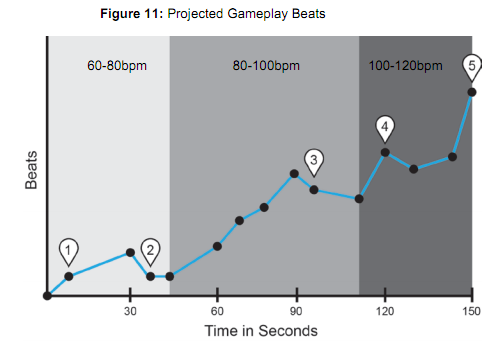
by Annie | Aug 24, 2011 | Game Design
I played a game today. No, it wasn’t Monopoly, Minesweeper, or Street Fighter. A few days ago, I got an Amazon gift card from my parents-in-law. So today, I played the Amazon gift card game. Curious? Here’s the high-level pitch: Play as a shopper trying to buy as many different items for a new apartment as possible while staying within the gift card amount. Rules: – Items must currently be in stock. – Shipping cost for each item cannot exceed item cost. – Bonus points for items that can be shipped together. The Result: I started out by filling up my shopping cart with over 3 times the amount of the gift card. Lots of balancing, compromising, and trading later, I ended up purchasing 8 different items for various rooms of my new apartment. In the process, I rediscovered some things I already had, prioritized my shopping list, and got a better idea of what I was looking for. The Takeaway: Anything in life can be a game. Look around you. Take any task, set a specific goal, add a few stipulations and a potential reward, and voila! You’ve got fun waiting for you around every corner. Don’t believe me? Try it out. Here are some daily tasks to get you started: – Waiting for the bus – Washing dishes – Going grocery shopping – Paying bills – Making the bed Anyone can be a game designer. Fill your life with games, and you can play even the most ordinary moments...
by Annie | Aug 12, 2011 | Education
During my two years in the classroom, I had lots of talks with my students. We discussed the fourth grade slump, the importance of fractions in daily life, and what happens when you get caught cheating. But one of the most heartbreaking talks I ever had with my students was about the achievement gap. During my first year of teaching, I had a group of very bright, talented, and eager fourth graders. They were street smart, curious, and intent on success in life. One day, during a conversation about standardized testing, one of my students pointed out that some schools seemed better than others. A brief intro to the achievement gap later, most of the class was more determined than ever to break the mold and soar above the rest. But at the back of the classroom, Ashley was in tears. It wasn’t fair, she said. Ashley was one of my best students, years above grade level in reading and very articulate. She went on to tell me about the struggles of her family and about how hard she had and would continue to work, but that it might not be enough. It’s one thing not to be able to provide a quality education to the students who are repeatedly tardy, have an arsenal of homework excuses, and cause daily disruptions in the classroom. But to look a child in the face, a child who desperately wants a good education, and to tell her that the world sometimes just isn’t fair, remains one of the toughest things I’ve ever had to do. If you haven’t already, consider watching the documentary...
by Annie | Aug 9, 2011 | Game Design
Think games are just a simple pastime? Think again. Around the world, game makers are creating games that continue to push the boundary in education, health, and world issues. Here are some of the things games have...
by Annie | Jul 22, 2011 | Psychology of Games
People are often surprised when I tell them I came to game design through teaching. “Wow, that’s a huge switch!” they’ll say. But if you examine the core of teaching and game design, they’re really not all that different. Sure, I used games in the classroom. On any given day, you could’ve walked into my classroom and seen my students engaged in a scavenger hunt, team trivia tournament, or math race. And let me tell you, any time I brought up the word game, even the most reluctant student would perk his ears up, eager to try something new. But I’m not just talking about using games to enhance teaching. I’m talking about teaching itself. The very act of teaching is, in itself, a form of game design. A teacher has a specific goal in mind (e.g., having her students pass the state math exam) and creates a structured experience to guide students toward that goal. So what do I do as a game designer? The same exact thing. I have a goal in mind, and I structure an experience to teach players the skills they’ll need to master the mechanics and succeed. And what I’ve discovered thus far is that, aside from a clear goal, the most important element of games is clear and immediate feedback. And that’s what my students responded to most in the classroom. Homework exercises required waiting until the next day to figure out if they got the answers right, but games allowed them to immediately correct any misunderstandings and level up their skills. If you think about it, the variety and intensity of...

by Annie | Jul 14, 2011 | Game Design
One of the most commonly dreaded terms in the VFS game design program is term 3. Why? Because that’s the term you write your first DDD – detailed design document. Why is the DDD such a dreaded assignment? After all, don’t game designers love coming up with ideas and fleshing them out? Absolutely. However, an effective DDD requires a level of detail many novice game designers aren’t accustomed to thinking about. Things like rate of fire, game time projections, and difficulty ramping. So how do you go about writing one of these so-called DDDs? Well, there’s no right or wrong way to go about it. First and foremost, you must keep in mind the audience you’re writing for. Think about Your Audience Think about the other members of your team: the programmers, artists, level designers, sound designers, etc. These are the people you’re writing the document for. What information do they need to create the game? As you write, imagine each of them, tired and grumpy at 2am trying to fumble through your document to glean the information necessary to meet the next deadline. In other words, your DDD needs to be both detailed and concise. Information like, “A bunch of enemies will appear on screen when you enter the hallway” is of little use to a programmer trying to script specific encounters. Be specific. Your job as a game designer is to anticipate the issues various people on your team will have when they try to create the game. So put yourself in their shoes, and make sure the DDD meets their needs. Keep It Organized Another thing that...



